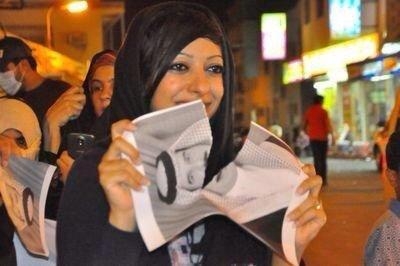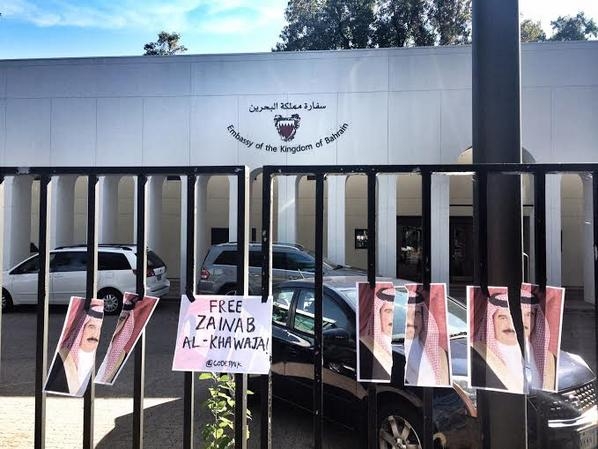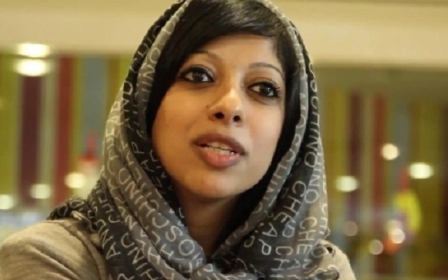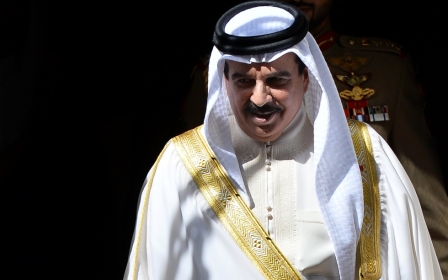Bahraini activists remain in prison despite UN calls for 'dialogue'
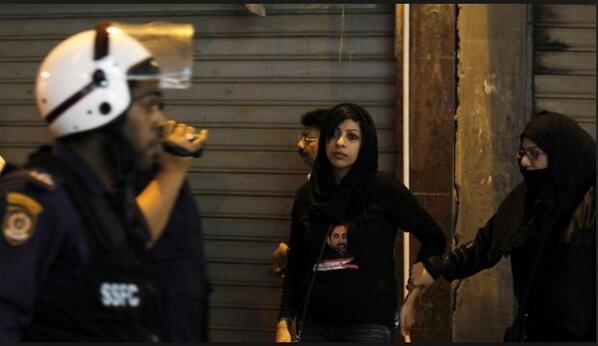
Zainab al-Khawaja, one of Bahrain’s leading human rights defenders, spent her 31st birthday in a Bahraini prison on Tuesday, after a judge adjourned her case.
Khawaja is eight months pregnant and could give birth “at any time”, according to the Gulf Centre for Human Rights.
She was arrested while appearing in a Bahraini courtroom on 14 October – she had been standing trial over allegations that she ripped up a photograph of Bahrain’s King Hamad Al Khalifa in 2012.
During court proceedings held last Tuesday over the allegations, she reportedly tore up a second picture of the King in front of the court and placed it in front of the judge – she was promptly arrested after the courtroom was cleared.
A solidarity demonstration with Zainab al-Khawaja saw activists in the US, a key ally of Bahrain, stick torn up pictures of the King to the gates of the Bahraini embassy in Washington DC on Monday.
Activists have also launched a campaign to show support for Khawaja on Twitter, with backers tweeting under the hashtag #zainabatrisk.
It is unclear how many of the tweets were sent from within Bahrain, where a third human rights activist, Nabeel Rajab, remains in prison after publishing a tweet in which he alleged that most Bahrainis who have joined Islamic State came from within the country’s security and military institutions.
Khawaja, whose sister is the recently-released human rights defender Maryam al-Khawaja, will stand trial on 30 October.
She faces charges of insulting the King, in what the Gulf Centre for Human Rights calls “the latest in a series of ongoing judicial harassment against her.”
The apparent groundswell of support for Khawaja came as the UN called on the Bahraini government to engage in “real dialogue with the opposition” ahead of the upcoming elections in November.
In a letter to King Al Khalifa on Tuesday, UN General Secretary Ban Ki-moon called on Bahrain’s leaders to “agree with opposition groups decisive steps towards achieving reforms that are meaningful and acceptable to all.”
Middle East Eye propose une couverture et une analyse indépendantes et incomparables du Moyen-Orient, de l’Afrique du Nord et d’autres régions du monde. Pour en savoir plus sur la reprise de ce contenu et les frais qui s’appliquent, veuillez remplir ce formulaire [en anglais]. Pour en savoir plus sur MEE, cliquez ici [en anglais].


